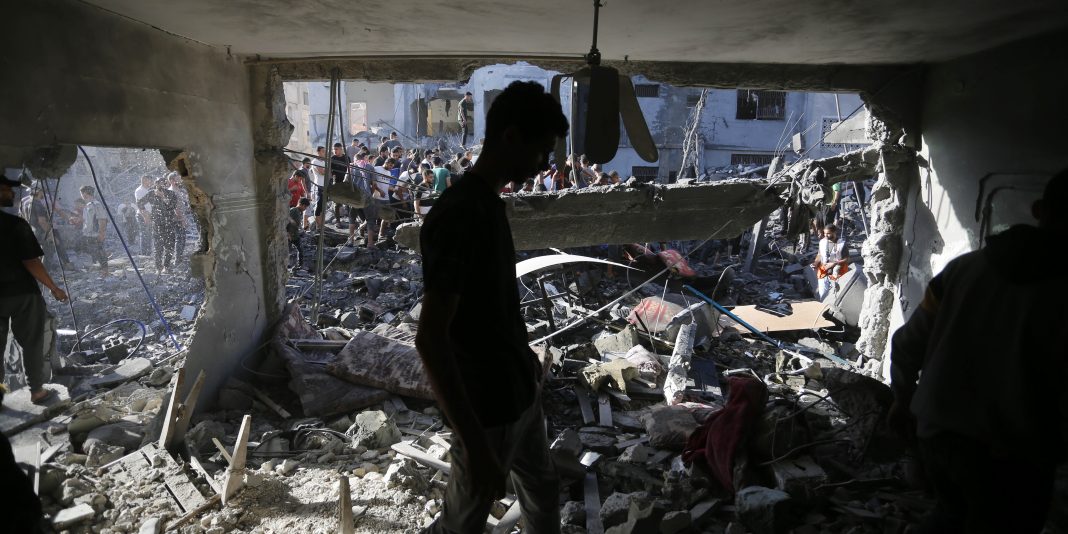Israeli Soldiers Killed 15 Protesters in the Same Place They Shot Aysenur Eygi
Introduction:
In recent years, there have been numerous incidents of Israeli soldiers shooting and killing Palestinian protesters in the village of Beita, near the West Bank. The killings of Imad Ali Dweikat and Aysenur Eygi are just two examples of this disturbing trend. Eygi, an American activist, was shot by Israeli forces while standing far away from any confrontations. These incidents highlight the Israeli authorities’ use of live ammunition on civilians as a means to suppress protest movements.
A Pattern of Targeting Civilians:
According to Aseel AlBajeh, a Palestinian advocate and researcher, the Israeli occupying forces and authorities do not discriminate when it comes to using live ammunition. They target Palestinians, protesters, journalists, paramedics, children, and even international activists standing in solidarity with Palestinians. This systemic use of force against Palestinian protesters is not limited to Beita but is a broader trend throughout the occupied territories.
The Case Study of Beita:
The village of Beita has become a case study for the Israeli military’s use of force against Palestinian protesters. Residents of Beita have been gathering for weekly protests against the nearby illegal Israeli settlement, Evyatar, which was built on Palestinian land. These protests often involve marching towards the settlement, chanting, and displaying Palestinian flags. While some protesters throw rocks, the Israeli soldiers and Border Police respond with deadly force, resulting in the deaths of innocent civilians.
Lack of Accountability:
The Israeli military claims to conduct internal investigations into these killings. However, the lack of cooperation from complainants and the low prosecution rate raise doubts about the effectiveness of these investigations. A survey by Israeli human rights group Yesh Din found that only 1 percent of complaints alleging military misconduct led to prosecution. This lack of accountability allows the Israeli military to commit violence against Palestinians with impunity.
Shoot-to-Maim Policy:
The Al-Haq report highlights the Israeli military’s shoot-to-maim policy during protests. Among the more than 6,000 injured protesters surveyed, 178 were injured by live bullets, and nearly 1,000 were injured by rubber-coated metal bullets. Most of these injuries were to the lower limbs, indicating a deliberate attempt to maim rather than kill. This policy aims to discourage Palestinians from participating in future protests and reduce their ability to resist Israeli occupation.
The Great March of Return:
The report also cites Israel’s use of shoot-to-maim and shoot-to-kill policies during the Great March of Return in Gaza. Thousands of Palestinians protested against the ongoing blockade of the territory and demanded the right to return to their land. During the 18-month-long demonstrations, 214 Palestinians, including 46 children, were killed, and over 36,100 were injured. The use of live ammunition by Israeli snipers resulted in permanent disabilities for many protesters.
Eygi’s Death and Calls for Accountability:
Aysenur Eygi’s killing has raised concerns about Israel’s ability to hold its own soldiers accountable. Her family, along with members of Congress, has called for a U.S.-led independent investigation. However, the Biden administration has refused to open a separate investigation until Israel concludes its own. The Washington Post’s investigation disproved Israel’s narrative and found that Eygi was shot during moments of calm, away from any immediate threat to the military.
Continued Resistance and Solidarity:
Despite the violence and lack of accountability, Palestinian protesters and international activists continue to stand in solidarity with Palestinians. Jonathan Pollak, an Israeli activist, has been assisting protesters in Beita for years. He emphasizes that the protests are not a military confrontation but a form of resistance against Israeli occupation. The Israeli military’s attempts to suppress these protests only strengthen the resolve of those fighting for Palestinian liberation.
Conclusion:
The killings of Imad Ali Dweikat and Aysenur Eygi are part of a larger pattern of Israeli soldiers targeting Palestinian protesters in Beita and other areas of the occupied territories. The use of live ammunition, shoot-to-maim policies, and the lack of accountability raise serious concerns about human rights violations and the suppression of peaceful assembly. The international community must take action to ensure justice for the victims and put an end to the violence against Palestinian civilians.


